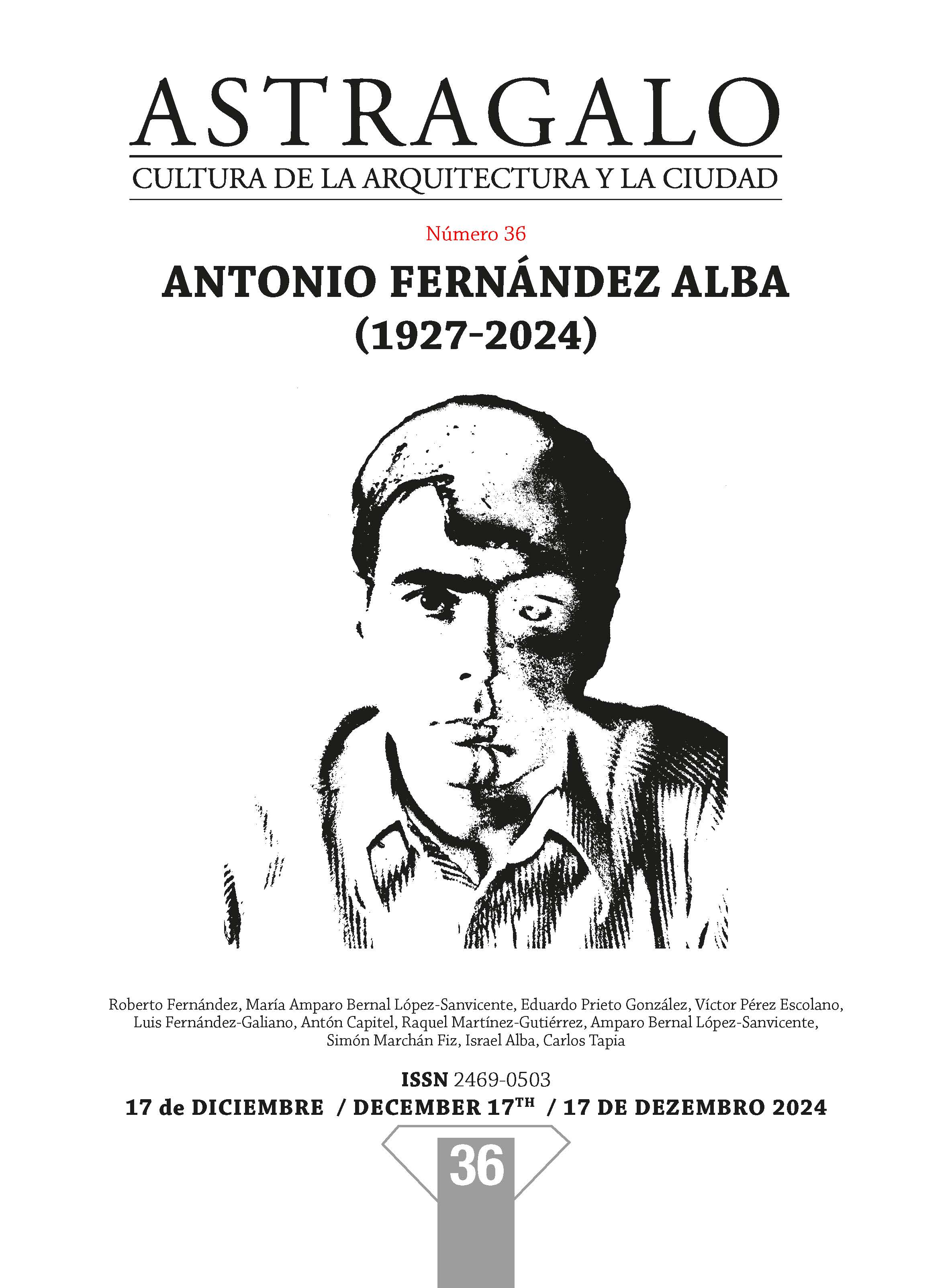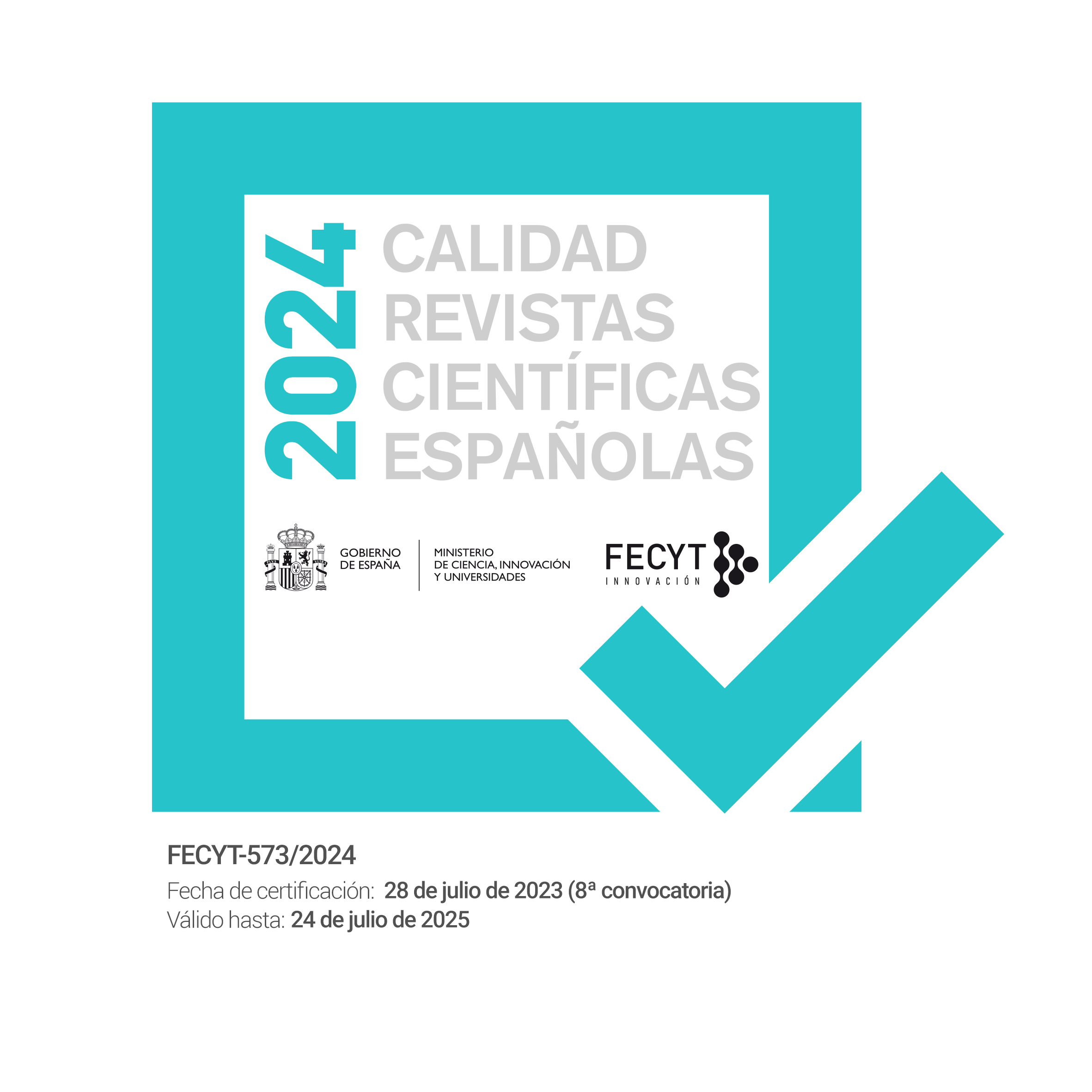La última entrevista. Una biografía intelectual de Antonio Fernández Alba
DOI:
https://doi.org/10.12795/astragalo.2024.i36.03Palabras clave:
Humanismo, memoria, literatura, historia, críticaResumen
En esta última entrevista se explora la vida y pensamiento del arquitecto español Antonio Fernández Alba. Desde su niñez en Salamanca, marcada por figuras como el maestro Atilano Coco y la influencia de Unamuno, hasta sus años de formación en Madrid, Fernández Alba forjó una visión arquitectónica comprometida, rica en referencias literarias y filosóficas. La influencia de Unamuno, Kierkegaard y Hölderlin lo acompañó en sus proyectos iniciales, los cuales reflejaban su arraigo con la tierra y el paisaje castellano, y su evolución estuvo marcada por encuentros con arquitectos como José Luis Fernández del Amo y Louis Kahn. Su obra abarcó desde un organicismo modesto hasta el diseño de edificios públicos emblemáticos durante la Transición española, como la Escuela de Arquitectura de Valladolid y el Centro de Datos del Instituto Geográfico. En su última etapa, se dedicó a intervenciones en patrimonio histórico, revelando su interés por la historia y la conservación. Fernández Alba siempre rechazó el culto a los "arquitectos estrella" y defendió una arquitectura humanista y cívica, enriquecida por la literatura y la filosofía. A lo largo de su vida, cultivó una intensa relación con las ideas, los libros y la crítica, lo cual lo llevó a replantear su papel más como lector curioso que como arquitecto consagrado, una humildad que reflejaba su profundo compromiso intelectual y cultural.
Descargas
Descargas
Publicado
Cómo citar
Número
Sección
Licencia
Derechos de autor 2024 Eduardo Prieto González

Esta obra está bajo una licencia internacional Creative Commons Atribución-NoComercial-CompartirIgual 4.0.


















